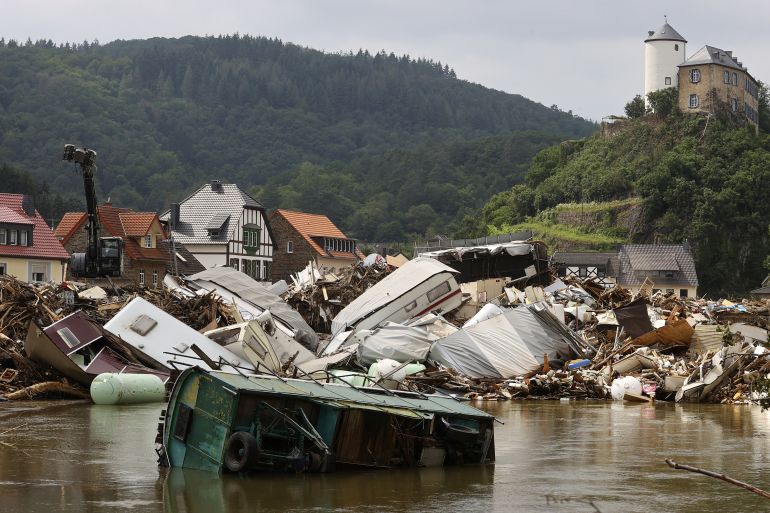Study: Climate Change to Cost Germany $960B by 2050
Extreme heatwaves, drought, and floods caused by climate change could cost Germany up to €900B ($960B) in cumulative economic damage by 2050 if no adaptation measures are taken, according to a German government study published Monday....

Facts
- Extreme heatwaves, drought, and floods caused by climate change could cost Germany up to €900B ($960B) in cumulative economic damage by 2050 if no adaptation measures are taken, according to a German government study published Monday.1
- The loss of agricultural yields, production and supply chain disturbances, infrastructural and transportation destruction, and health system disruptions are just a few potential economic costs of climate change.2
- The actual cost is expected to be significantly higher than the study's estimates as the researchers didn't account for all of the possible impacts of climate change, such as additional deaths, reduction in quality of life, and loss of biodiversity.3
- However, the costs of weak climate change – which amounts to €280B ($300B)– could be offset fully, and up to 60% of €900B could be mitigated if Europe's largest economy takes adequate measures such as investment in climate-resilient plant varieties and irrigation systems.4
- Climate change and extreme weather events have already cost Germany at least €145B between 2000 and 2021. Devastating floods in 2021, which caused more than €40B in damages, could 'occur more and more frequently,' and similar costs could be incurred 'every year by the middle of the century.'5
- Meanwhile, Germany seeks to transform toward a green economy and aims to reduce carbon emissions by 65% by 2030, become climate-neutral by 2045, and achieve negative greenhouse gas emissions after 2050.6
Sources: 1Al Jazeera, 2Reuters, 3Bloomberg, 4Brusselstimes, 5Barrons and 6Oecd.
Narratives
- Pro-establishment narrative, as provided by Washington post. Germany’s climate adaptation measures have taken a back seat as Europe grapples with an energy crisis — driven by Russia’s invasion of Ukraine — forcing a return to coal to ensure the country’s energy security squeezed by the Russian natural gas supply cut, undermining its efforts to stay in line with its CO2 budget agreed to with the Paris Agreement. Nonetheless, Germany is committed to investing in transforming the economy and shifting away from planet-heating fossil fuels toward renewable power.
- Establishment-critical narrative, as provided by Downtoearth. Arguing that the rise in the use of fossil fuels is a temporary reaction to an abrupt reduction in Russian gas supplies is unjust. Germany's greenhouse gas emissions increased by nearly 5% in 2021 compared to the previous year, with the transport and the building and heating sectors failing their annual emission reduction targets. The country's energy policies bring into question its climate credentials. Berlin continues to invest in new fossil fuel infrastructure and rely on dirty fuels.






